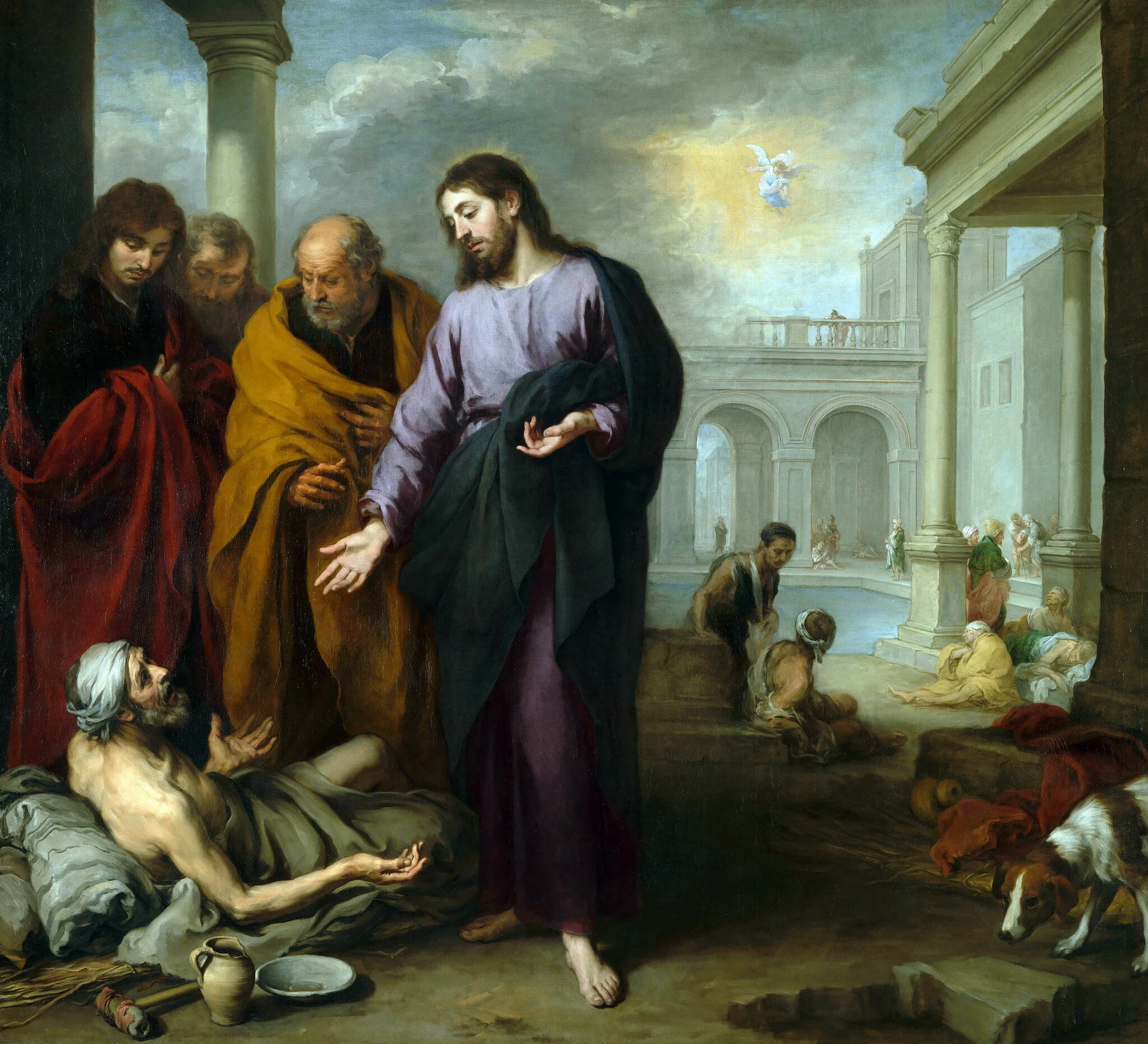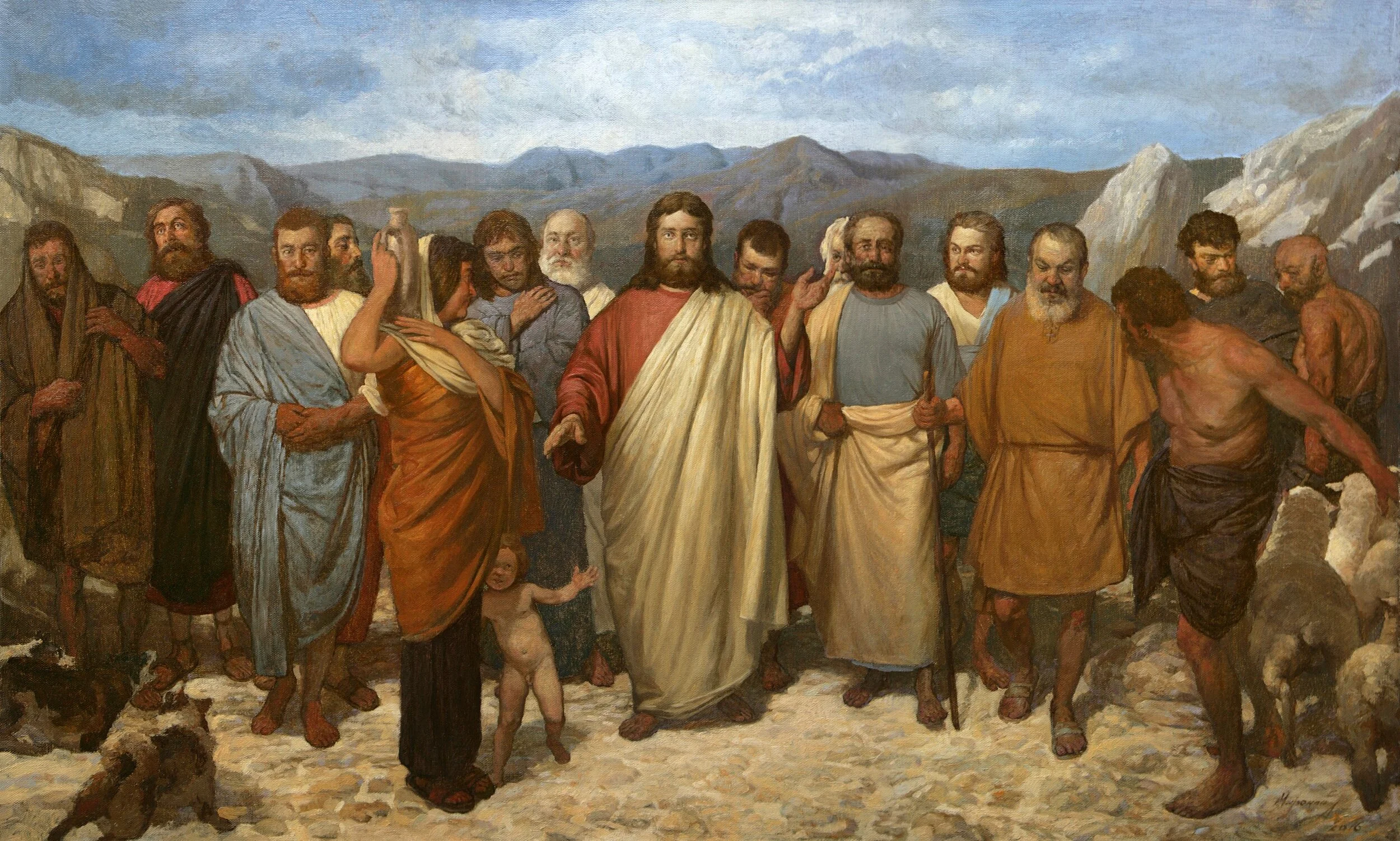Eighteenth Sunday After Pentecost (Traditional Latin Mass)
/Dominica XVIII Post Pentecosten (Mass of the 1962 Missal)
26 September 2021
IN THE NAME OF THE FATHER, AND OF THE SON, AND OF THE HOLY GHOST. AMEN.
This brief passage from St. Matthew gets right to the point of showing our Blessed Lord as able to heal both body and soul. The Lord’s identity and power as God is on display. He knows the interior thoughts of the scribes who do not even say verbally, yet think, that he has blasphemed by taking on an attribute of God, namely forgiving sin. He goes on to prove his authority by performing a physical healing, the miraculous healing of the paralytic. And though the interior thoughts of man may still today raise questions, doubts, and complaints about the method God chooses to forgive sin, this passage also makes it clear that our Lord has given this authority of his to men, something we hold in faith in our belief that sincere confession and valid absolution are the normal sacramental means by which the Lord Jesus forgives sin in his one Catholic Church.
The parallel passages recounting this same episode from the Gospels of St. Mark (2:1-12) and St. Luke (5:17-26) fill out the picture and tell us more about this episode. For instance, in the other parallel accounts we learn specifically that four men, presumably friends of the man with palsy, are carrying his mat. And we learn that the crowds around the Lord are so dense that the only way the men can get the sick man to the Lord is by opening a hole in the roof and lowering the mat down before the Lord.
All of the Gospel accounts of this event however make note of a particular motivation that drove the Lord to grant the spiritual healing of sin and the physical healing of paralysis. The passage notes, “and Jesus seeing their faith,” went on to forgive the sins of the man with palsy. I find this simple acknowledgment quite interesting. The Gospel passage clearly makes reference to the plural in making use of the possessive pronoun “their,” as in “their faith.” That pronoun could be an indication that upon seeing the faith of all five men (the four carrying the mat and the man with palsy) the Lord performed the miracle. Or it could be an indication that upon seeing the faith of only the four who carried the mat he performed the miracle. Whatever the case, it is certainly true that the reference is plural and thus the faith of the paralytic’s friends is also something that motivated the Lord.
We can learn in part by this how our Lord chooses to function in dispensing his grace. Faith is an important foundation and a requisite for receiving God’s life. We in no way want to dismiss the importance that the sick man himself needs to have faith. However, by this passage, we learn a critical lesson that should drive us to be living members of the Body of Christ, seeking to maintain the life of grace, and guarding our unity with the Lord, because we learn that the faith of the sick man’s friends was also instrumental and a motivating factor for our Lord’s miraculous working. This truth revealed in the Gospel is a foundational reason for our belief in the communion of the saints, and even related to the doctrine on indulgences. Despite some controversy with the doctrine of non-Catholic Christians, this passage shows us that the Lord chooses to forgive sin and to heal at least some people because of the merits of others (Sermon for this Sunday from St. Ambrose, The Sunday Sermons of the Great Fathers, v. IV, p.183). Yes, the merits of one person or group can positively impact the good of others and can be a manner by which the Lord dispenses his grace to someone in need. That might not sound shocking to us. Yet to some Christians it is. Suspicion of this Gospel lesson and rejection of this Catholic doctrine leads some to be offended by the notion of the unity we have in Christ and the powerful effects of the intercession of the saints for us, and our part in interceding for others. We as Catholics accept this as true. And even more mysterious and viewed with suspicion is the doctrine of indulgences, the foundation of which is the belief that the treasury of graces and spiritual gifts won by Christ together with the saints is like a rich store that the Church has a role in dispensing to the faithful, in particular for the departed and those who have no one to pray for them or to assist them. For whatever rejection this doctrine might meet, we accept it and find in the brief words today an important foundation of this belief: Seeing their faith, [Jesus] said to the man sick with palsy: Be of good heart, son, your sins are forgiven you.
My brothers and sisters we want to find consolation, joy, and encouragement in such simple words, words it would be easy to pass right over in this passage. We ourselves have needs. We know of so many loved ones and friends and still others with whom we interact who need the Lord’s grace and healing. We naturally want to support in prayer those who have passed before us in death. And we know we will make that passage someday too and we hope someone will pray for us and assist us. The working of God’s grace is not like granting a wish. It is mysterious. The faith of an individual person must always be involved. Yet, the faith and merits of others are involved too. May the generous response of the Lord in today’s passage, motivated at least in significant part by the faith of the sick man’s friends, be an encouraging message for us that we might have confidence in lifting the needs of others to the Lord, interceding for others so that they are carried to the Lord and even placed before him by our faith.
IN THE NAME OF THE FATHER, AND OF THE SON, AND OF THE HOLY GHOST. AMEN.



